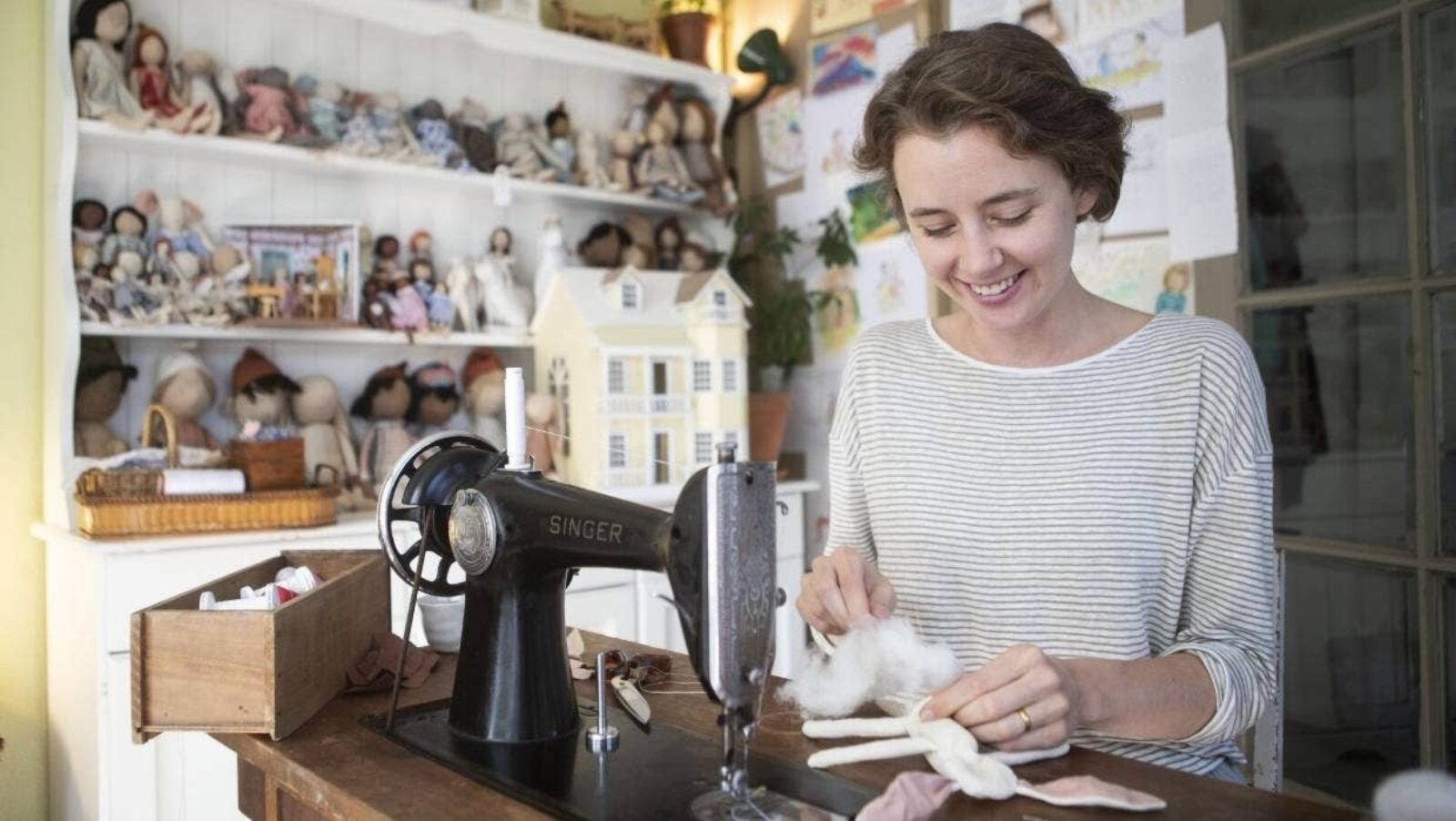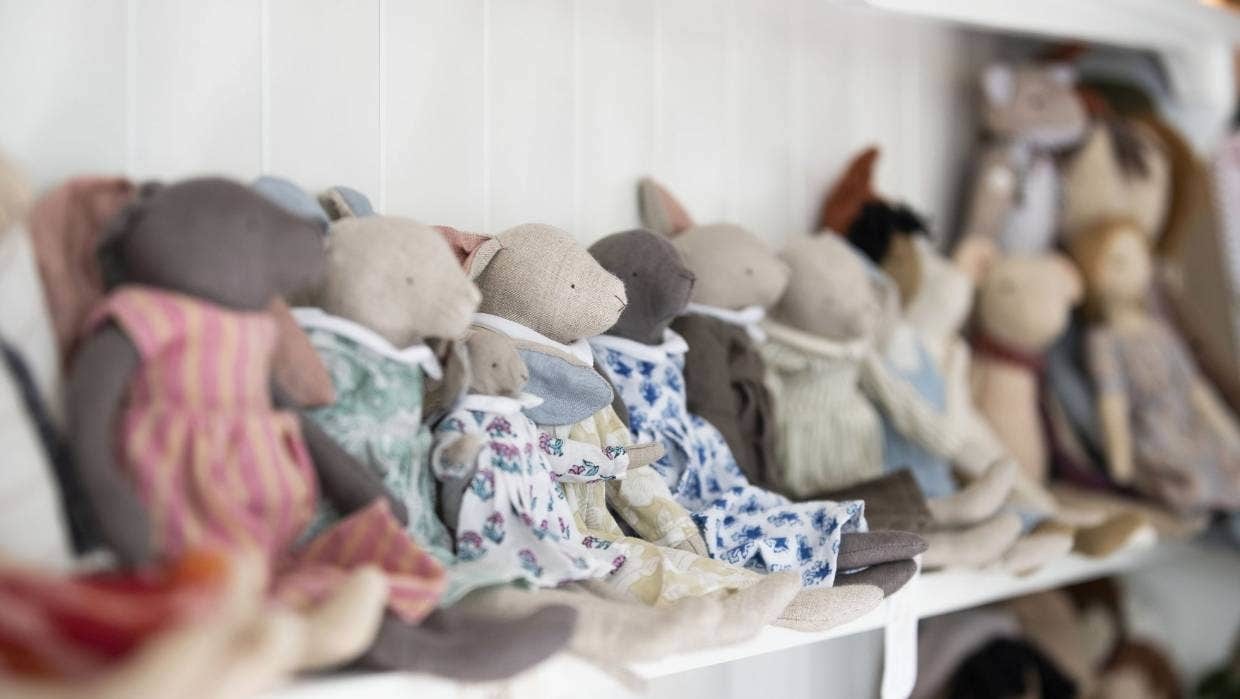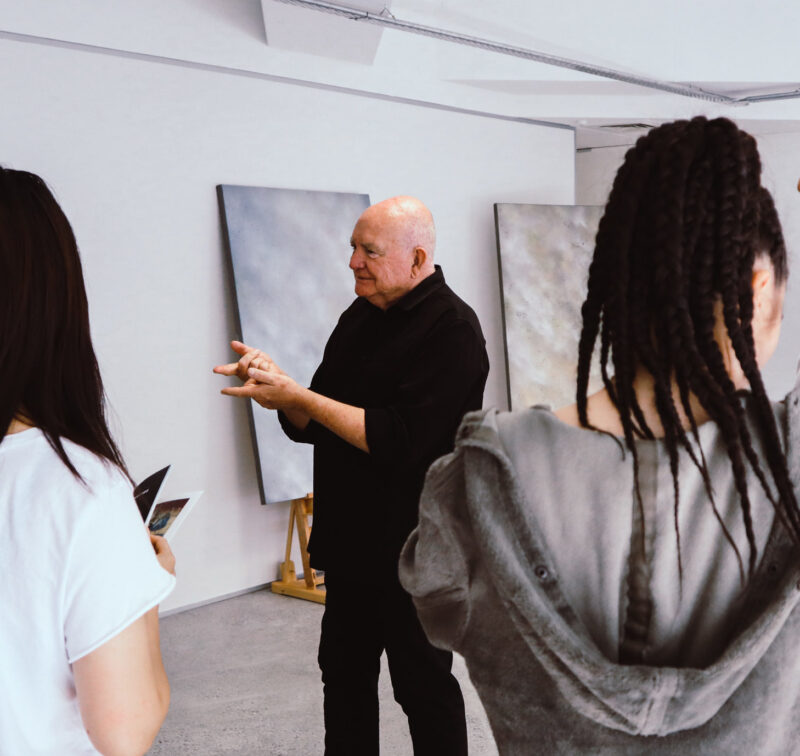Creativity the key to dollmaker's battle with anxiety
MFA Alumni Hilary Tapper makes custom dolls for people all over the world by using upcycled materials and to promote messages of love


Stepping into Hilary Jean Tapper's workshop is like discovering Alice in Wonderland's secret Christchurch hideaway.
Tacked to the walls of her Beckenham studio are watercolour illustrations with messages of hope, support and strength. Handmade dolls sewn from fabrics in muted shades of mint, pale yellow and peach line the shelves and an antique sewing machine and wooden box brimming with threads are basked in mid-morning sunlight.
Floral scraps litter the workbench and a butter-yellow dollhouse is displayed. In the corner is a curious display of knick-knacks, candles and frames collected over five years in India.
Tapper, a former filmmaker, grew up in Auckland and studied art, film, theatre and dance before moving to Belgium to study Hindu theology.
She worked as a cinematographer and editor, receiving numerous awards for her films on mindfulness and self-discovery, moved to in India, where her husband worked in temple restoration, and began to struggle with anxiety and depression. She decided to step back from technology and "the noise of life", and tried using her hands for more creative projects.
"I woke up one morning and decided to make a doll ... she gave me so much life, and hope. She was just beautiful, it was a creative resurgence in my life."
Made from an old dress stained with ayurvedic Indian medicine to darken the skin, the doll was stuffed with cotton balls from nearby cotton fields and dressed in an outfit made from hand-pressed fabrics.

Tapper visited Women Weave, a looming businesses supporting impoverished women, and bought khadi fabric – a handspun, hand-woven natural fibre made famous by Ghandi during the freedom movement.
Three years later, her dollmaking business has grown to include dozens of "courage dolls", and family doll portraits, but the handmade, natural element remains.
The dolls' skin is always made from khadi, the same fabric bought back in a suitcase from India, and stained with fairtrade tea and coffee and set with vinegar.
Customers can personalise their doll by picking the skin and hair colours, outfit and special traits. Wire glasses, dragon spikes, pinafores and flower crowns were additional add-ons.
Inside each doll is a small message of love.
"Each doll is totally all my heart ... every face has a little personality and turns out really special. It's like people, everyone looks so different."
They are sold at the Lyttelton Market, craft fairs and online. Tapper said women had cried with happiness at her stall from the joy the dolls' brought.
Seeing little girls received their custom orders on Christmas Day had also been a highlight as they offered respite from the world of plastic toys and digital games, she said.
Tapper, who is studying for a Masters in Art Therapy, said she dreamed of illustrating children's books with stories of self-empowerment, teaching workshops like the one held at Necessary Traditions Festival in November, and hoped to realise a doll-making kit to encourage others to try sewing.
Click here to view the video.
Article written by Maddison Northcott. First published on Stuff.co.nz
Talk to our team

If you would like to ask us a question or request more information, please detail your enquiry using the form below. If you would like you can contact us directly on 0800 800 300, email us or use the contact us form.